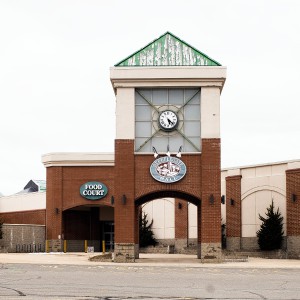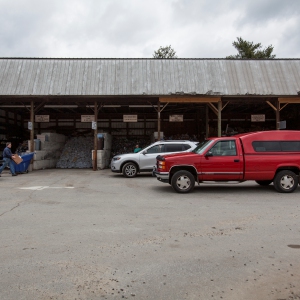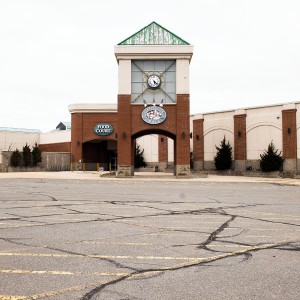Ex-Loudon firefighter to serve negligent homicide sentence at county jail, not state prison
| Published: 01-02-2020 4:23 PM |
An ex-Loudon firefighter convicted in December of negligent homicide in the death of his childhood friend will serve his two- to six-year sentence at the Merrimack County jail and not in state prison.
The New Hampshire Department of Corrections recently authorized Tyler Dempsey’s stay at the jail in Boscawen after Judge Richard McNamara and attorneys on both sides were unanimous in their opinion that prison was not the appropriate punishment. They cited Dempsey’s clean record, his genuine remorse and the steps he took post-arrest to claim responsibility, including his resignation from the Loudon Fire Department and his decision to go to jail well in advance of sentencing.
Under state law, defendants who are sentenced to more than one year of incarceration traditionally serve that time at one of the state’s three prisons. However, the department of corrections has the authority to make an exception when it deems appropriate, particularly when a recommendation comes from the trial court judge.
Had corrections officials not granted the request, McNamara said he would have strongly considered modifying the imposed sentence to ensure Dempsey did not go to prison.
Standing before McNamara in court on Dec. 16, Dempsey took full responsibility for causing the high-speed rollover crash that killed longtime friend and roommate Ryan Christie six months earlier. He said he too wanted justice for Christie.
“It is difficult to express and articulate the significance Ryan had in my life, and the great void that’s been left in his wake,” said Dempsey, 23, of Loudon.
“I’m committed to serve the time that’s deemed necessary with the hope to sometime re-enter the world,” he continued.
A New Hampshire State Police investigation found that Dempsey had been driving 75 mph in a 30 mph zone just before the crash on Bee Hole Road. Dempsey, Christie and Leandra Jimmo – a backseat passenger – had gone out for drinks together at TGI Fridays on Loudon Road and Tandy’s Pub on Eagle Square in Concord and were on their way home when the crashed occurred.
Article continues after...
Yesterday's Most Read Articles
 Neighboring landowner objection stalls Steeplegate redevelopment approval
Neighboring landowner objection stalls Steeplegate redevelopment approval
 Northeast Coffee Festival comes to Concord this weekend
Northeast Coffee Festival comes to Concord this weekend
 Hopkinton tries to nab out-of-town trash bandits
Hopkinton tries to nab out-of-town trash bandits
 On the Trail: Democrat Maggie Goodlander jumps into race to succeed Kuster
On the Trail: Democrat Maggie Goodlander jumps into race to succeed Kuster
 NH Senate panel frowns on bill to ease vehicle inspection requirements
NH Senate panel frowns on bill to ease vehicle inspection requirements
 Steeplegate project to reopen to public comment as developer seeks to reduce required parking
Steeplegate project to reopen to public comment as developer seeks to reduce required parking
While Dempsey had agreed to plead guilty to negligent homicide, a Class B felony, for speeding before the crash that killed Christie, attorneys made separate sentencing recommendations at his hearing on Dec. 16. The defense asked for a one-year jail sentence with three years of probation, but prosecutors asked for a two- to six-year sentence on the charge, which carries a maximum penalty of up to seven years in prison.
McNamara told Dempsey that he believed prosecutors’ recommendation is most appropriate given the serious nature of the crime, which ended a man’s life.
“Mr. Dempsey, you have your whole life ahead of you,” McNamara said. “This is something that has to happen. I wish I didn’t have to sentence you to this sentence. It is my duty.”
Dempsey, who worked as a part-time EMT and firefighter, was placed on administrative leave from the Loudon Fire Department immediately following his arrest. He then resigned from his post in October, the town’s Fire Chief Tom Blanchette said. It was around that same time that Dempsey voluntarily surrendered to state custody and began serving time at the county jail.
Nick A. Mercuri, chief of strategy and planning and public information officer for the division of fire and EMS, declined to discuss the specifics of Dempsey’s case but offered an overview of the rules and laws that govern how complaints and investigations are handled by the state.
Any person who has been convicted of a felony crime that resulted in injury or, more broadly, endangered the public is not eligible to work in the fire and emergency medical fields unless he or she has been pardoned or had the conviction annulled.
In cases where someone is already licensed, like in Dempsey’s case, there is a formal hearing process through the Department of Safety’s Division of Fire Standards and Training and Emergency Medical Services. For example, under division rules and state law, the commissioner has the authority to revoke a person’s EMT license at the end of that process if he or she has been convicted of a crime relating to the duties of emergency medical care or if the crime endangered public safety.
Because licensure is not dependent on one’s employment status, complaints can be brought forward at any time.


 Adam Montgomery sentenced to minimum 56 years on murder charges in young daughter’s death
Adam Montgomery sentenced to minimum 56 years on murder charges in young daughter’s death Following budget cut, Pembroke revisits future of elementary school re-build
Following budget cut, Pembroke revisits future of elementary school re-build Granite Geek: Free government software for taxes – what could go wrong? (Not much, as it turns out)
Granite Geek: Free government software for taxes – what could go wrong? (Not much, as it turns out)
